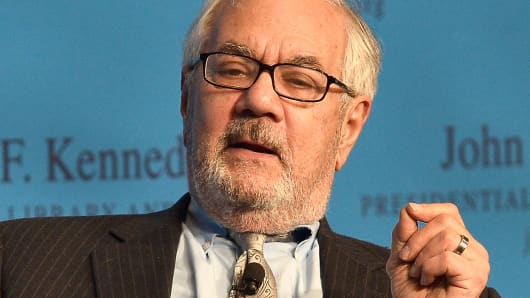With America growing faster than any other developed nation, and with unemployment dropping sharply, the only effective attack they can mount is to note the absence of significant wage gains for most workers. Given the good overall economic performance of the economy in the past few years, all but the most conservative have added a focus on how the proceeds of growth are shared to their previous insistence that the rising tide will lift all boats. (I did read recently a Wall Street Journal denunciation of "class warriors." It already seemed anachronistic).
In fact, those — again, myself included — who overestimated the negative reaction that would be triggered by Bernie Sanders and his self-professed socialism did so in substantial part because we underestimated the American people's post-2008 disenchantment with unrestrained capitalism.
What does this death of the "class warfare" bogeyman mean for our political culture, this year and after? In both cases it is very good news for the Democrats, although with some complication in this year's race and the strength of the Sanders candidacy. I continue to believe that he will be weaker in November against Trump or Cruz than Hillary Clinton.
But even in that case, the ability of Democratic candidates across the board to denounce excessive inequality without losing votes for engaging in class warfare will put them in a much better position to capitalize on voter anger than their opponents. Republicans prepared to talk about the problem of inequality face a dilemma: their ideology and the strong feelings of their own base constrains them from promising to do anything to alleviate the problem.
How does a Republican plausibly campaign in part on a pledge to reduce excessive inequality while opposing if every single public policy that does anything to achieve it?





